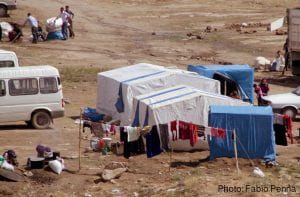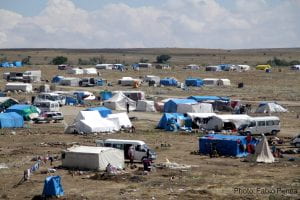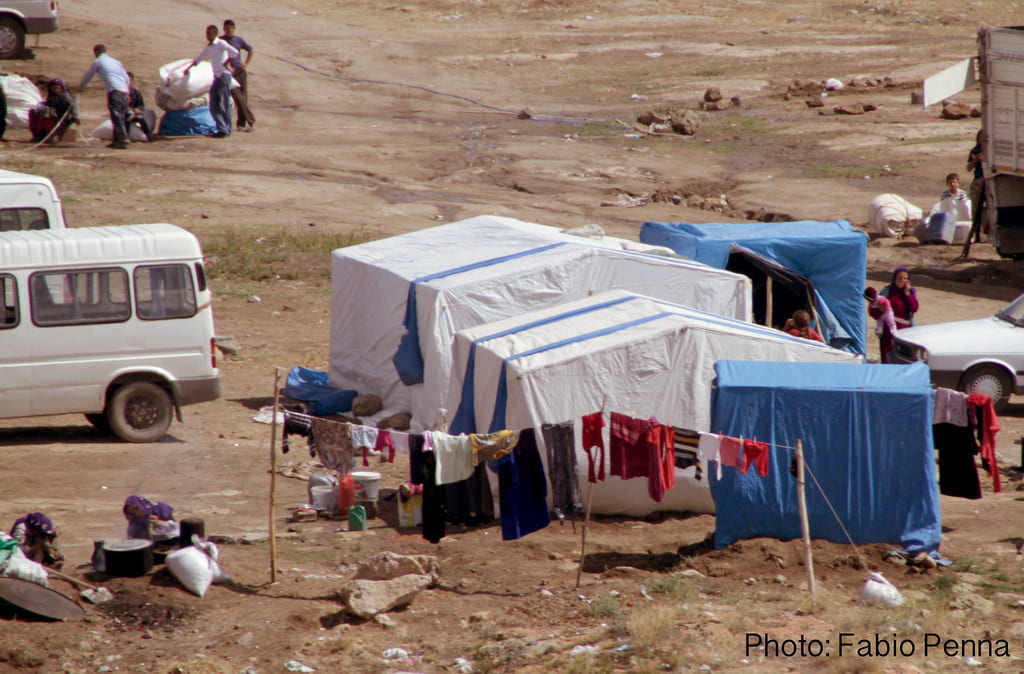by Mariana Orozco, UAB student
In March 2016, The European Union and Turkey made an agreement stating Turkey would keep all asylum seekers who arrived on the Greece border in return for billions of dollars. This deal has put many asylum seekers at risk due to the dangerous environment in Turkey. However, this continues to be accepted and there are no signs of change in the future due to Greece’s incomplete assessment of Turkey as a safe third country. In February 2020, Turkey retracted their statement, saying they would not stop refugees going into Europe. Turkey is the country with the most refugees – 3.6 million Syrian refugees. Since the Syrian government started bombarding their citizens with air strikes, no other European country has tried to host Syrian citizens. When Turkey finally opened its borders into other European countries, the asylum seekers were met by armed Greek border guards, tear gas, rubber bullets, and razor wires. Turkey opened its borders to force the European nations to stop ignoring the crisis in Syria. If the international community does not step in more unarmed civilians will continue to face violence in Syria, and the situation in Turkey will worsen.

What is the status in Turkey?
Turkey has been home to over 3.7 million refugees, providing them with free public services, health care, and gainful employment; there are many obstacles Syrian refugees have to go through to get these. For example, Turkey adopted a work permit in 2016, but they must be requested by employers, who are often unwilling to cover the costs and face the administrative hurdles of hiring a refugee. As a result, most refugees work in low-paying jobs, such as jobs in small textile workshops and construction.
Furthermore, Turkey does not sign off on international refugee law. Therefore, they do not allow many refugees to obtain legal status. Many Turkish authorities also force the refugees to go back to Syria, leading them to want to flee to a safer place regardless of the conditions, such as Greece.
Greece’s Response to Turkey Opening Borders
Greece has broken European Union and international law. The government is suspending the registration of any asylum claims and deporting anyone for any reason something that goes against Geneva’s Convention on Refugees. The core principle states that a “refugee should not be returned to a country where they face serious threats to their life or freedom.” Close to 40,0000 migrants are being held in camps with short food supply, poor sanitation, and tensions with locals. Although the United Nations Refugee Agency did urge Greece to address its overcrowding and precarious conditions, not much has improved. Once refugees arrive, they are not allowed to leave until their asylum requests are processed, leading to the 90,000 cases backlog.

What about the rest of the European Union?
Turkish President Recep Tayyip Erdogan warned NATO allies and European allies that if they “do not share the burned with us, we will open the gates” . President of the European Commission described Greece as Europe’s shield in migrant crisis. They also proposed financial and material support to prevent people from entering Greece, because once they do they will continue to spread in Europe.
What should Happen next?
Europe should take a new approach to safeguarding the human rights of refugees and start sharing the responsibility for allowing them to live in dignity and peace. Many of the people leaving their countries do it out of desperation, and European governments need to ensure asylum seekers have fair procedures. Also, they must control border control and unlawful acts by authorities. Instead of hoping that the problem goes away by having migrants go to different places, the European Union needs to address the reasons why people are fleeing Syria.

